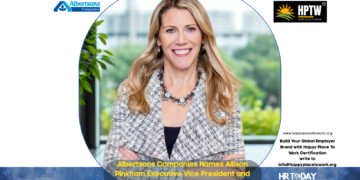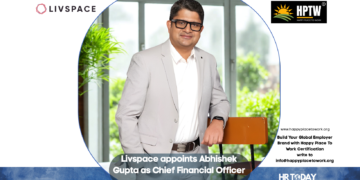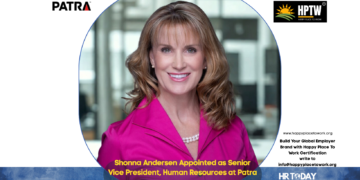Every organization today operates with multiple generations working side by side, each bringing distinct expectations about work, career progression, and workplace culture. Gen Z is projected to make up 30% of the global workforce by 2030 (McKinsey) and just about time for Gen Alpha to start joining the workforce, fundamentally altering how businesses must think about employee engagement, technology adoption and organizational design. This is not another cyclical shift requiring minor adjustments. The convergence of generational diversity with rapid technological advancement has created an inflection point where traditional workplace models must evolve or risk becoming obsolete.
As the workplace undergoes a foundational shift, organizations today find themselves at the crossroads of four converging forces: increasing generational diversity, evolving employee expectations—especially from Gen Z, the accelerating role of technology in shaping work, and the pressing need for organizational adaptation.
These forces are not isolated trends but interconnected dimensions of a broader transformation that is reshaping how businesses operate, how leaders lead, and how people experience work. To thrive in this new reality, companies must go beyond surface-level adjustments and reimagine their systems, mindsets, and capabilities from the inside out. Let’s explore how each of these elements is influencing the future of work and what it takes to lead through this change.
As we recognize the seismic workplace shifts brought about by demographic and technological forces, it becomes essential to understand the generation at the heart of this evolution. Gen Z is not just another employee cohort—they are redefining how work is perceived, experienced, and valued. To navigate the future, we must begin by decoding what truly sets them apart.
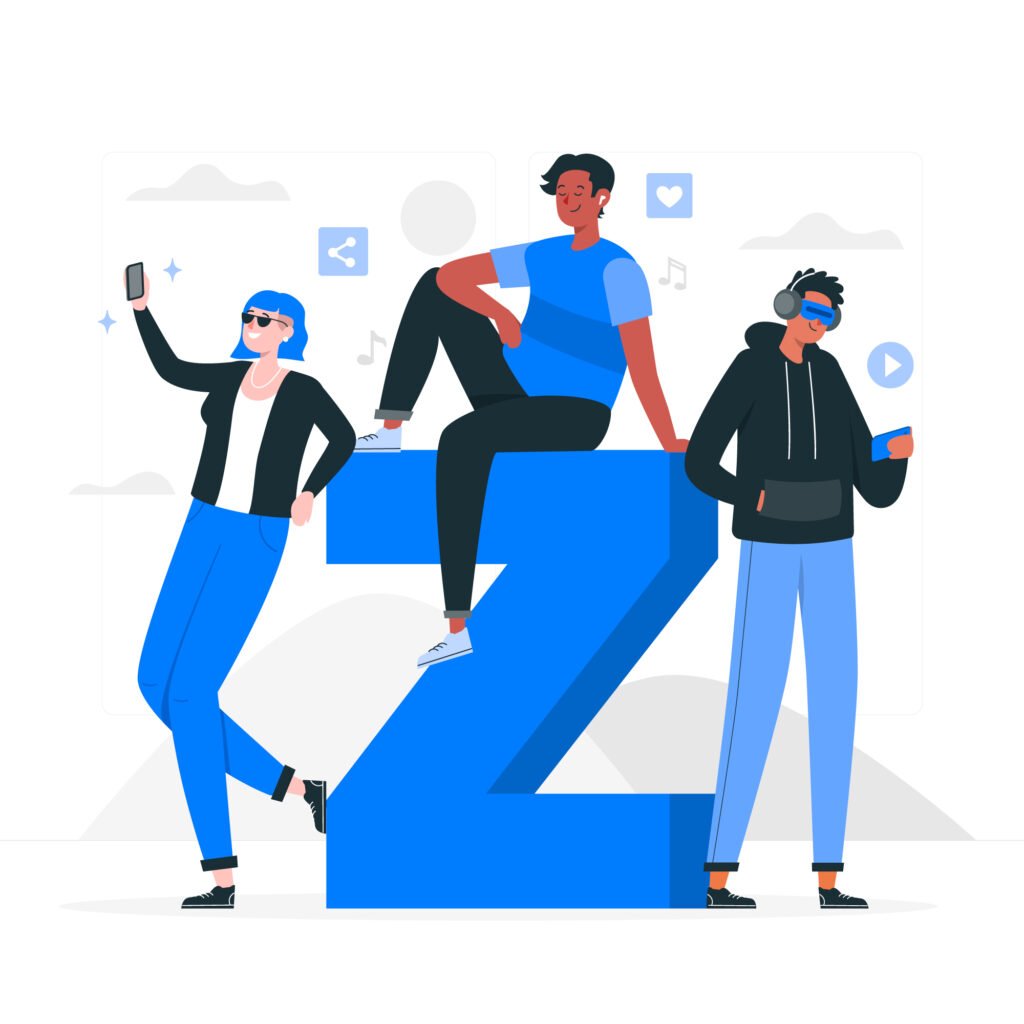
How different is Gen Z?
The conversation around Gen Z integration often focuses on distinctiveness. This generation values flexibility, seeks roles aligned with personal meaning, prefers continuous feedback over annual reviews, and expects rapid career progression. As digital natives, they look to technology not as an add-on but as an enabler expecting it to simplify, not complicate. Their relationship with hierarchy is functional, not reverential.
Rather than dwelling on these differences, organizations benefit from understanding the underlying drivers. Gen Z challenges traditional systems, asking why learning must be formal instead of experiential, or why purpose should be implied rather than explicit. Raised in the era of Facebook, Instagram and Twitter, they are more accustomed to immediate, personalized, and transparent interactions and feedback. The fundamentals of recognition, growth, fair compensation, and belonging remain universal across generations— what has changed is the delivery mechanism.
This shift demands that HR evolve from policy enforcers to experience architects. A recent Deloitte Global 2025 Gen Z and Millennial Survey reinforces this shift. 89% of Gen Z believe purpose is essential to job satisfaction, only 6% cite senior leadership roles as their primary goal and nearly 74% expect AI to transform their roles in the coming year. Traditional models of compliance enforcement no longer suffice when designing touchpoints that engage, develop, and retain talent across generational lines. While digital platforms can facilitate real-time feedback, personalized learning paths, and flexible work arrangements, they must be anchored in human connection and organizational purpose. This also has a positive rub-off with the older generations who are seeing value in an open, transparent, and engaging work environment.
But understanding Gen Z’s mindset is only the beginning. Meeting their expectations requires more than cultural awareness—it demands bold, tech-enabled transformation. As digital natives, they see technology as an enabler of engagement, learning, and growth. This makes the case for embracing tech not as a trend, but as a foundational pillar of future-ready workplaces.
Does Tech play an increasingly important role?
Organizations that recognize technological integration as an opportunity rather than a concession, gain a competitive advantage. AI-powered performance systems can provide the continuous feedback Gen Z craves while maintaining the strategic conversations that seasoned professionals value. Digital learning ecosystems offer microlearning for immediate skill development alongside comprehensive programs for long-term career growth. Collaboration platforms enable flexible work while preserving the mentorship and knowledge transfer that builds organizational capability.
According to Deloitte’s 2025 Gen Z & Millennial Survey, over half of Gen Zs and Millennials globally are already using generative AI regularly at work, yet many still lack access to formal training—revealing a growing gap between usage and preparedness.
Legacy organizations have navigated generational transitions before, and patterns emerge from those who succeeded. When Baby Boomers entered the workforce, they challenged the formality and lifetime employment expectations of the Silent Generation. When Gen X arrived, they questioned the corporate loyalty and hierarchical structures that Boomers had embraced. When Millennials joined, they demanded work-life integration and purpose-driven careers. Each transition required adaptation, yet organizations that thrived maintained their core identity while evolving their practices.
But understanding Gen Z’s mindset is only the beginning. Meeting their expectations requires more than cultural awareness—it demands bold, tech-enabled transformation. As digital natives, they see technology as an enabler of engagement, learning, and growth. This makes the case for embracing tech not as a trend, but as a foundational pillar of future-ready workplaces.
However, digital tools alone cannot carry the weight of transformation. To truly evolve, organizations must embed these changes in leadership structures, learning frameworks, and everyday practices. This means reimagining middle management, embracing experimentation, and building systems that work for all generations—not just the newest entrants.
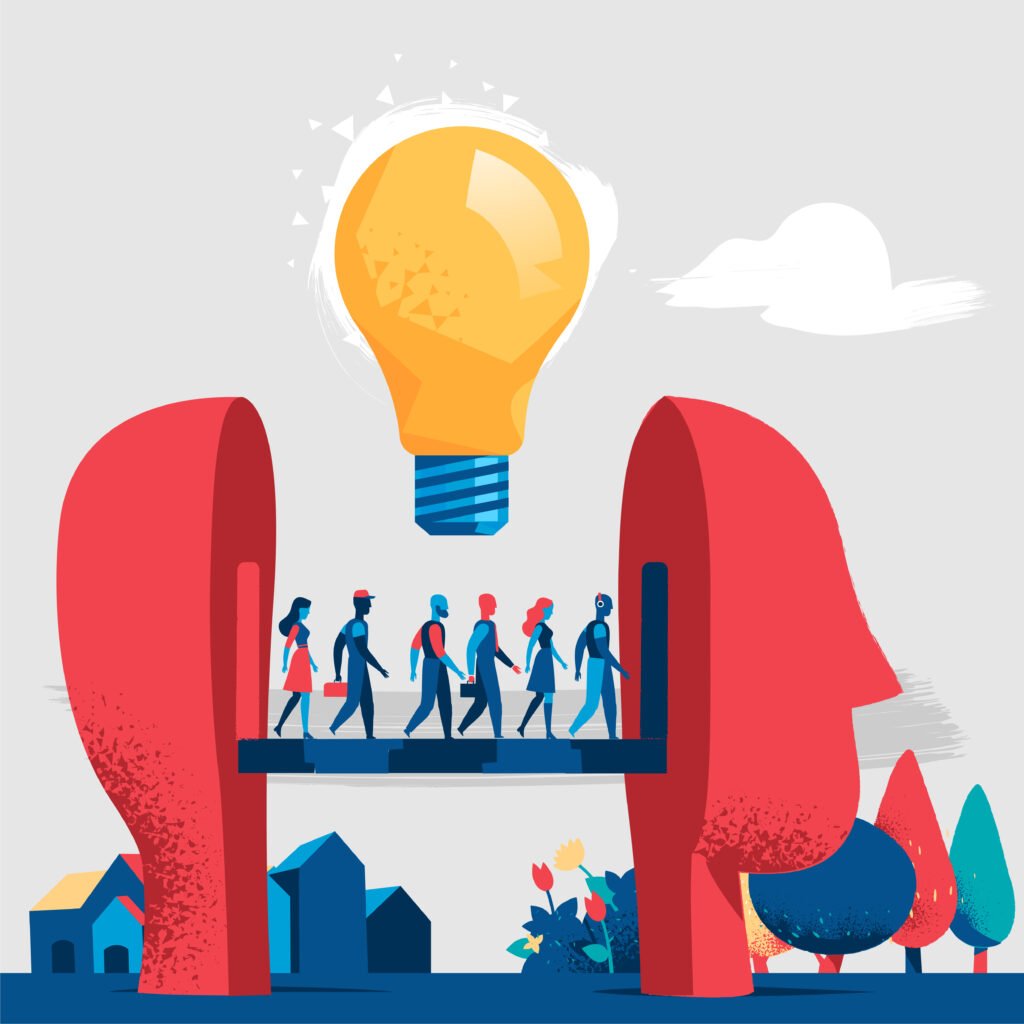
Adapting & Evolving
Organization that adapts effectively, invest in middle management development, recognizing that supervisors are the critical bridge between generational expectations. They create dual-track career paths that accommodate both traditional advancement and lateral exploration. They establish reverse mentoring programs where knowledge flows multi-directionally. Most importantly, they maintain operational excellence during periods of cultural evolution, proving that adaptation and performance are not mutually exclusive.
Companies that navigate generational shifts successfully are also those that institutionalize experimentation. They create safe spaces for pilot programs, allowing different approaches to coexist before scaling successful innovations. They measure engagement and productivity across generational lines, using data to inform decisions rather than assumptions. They build feedback loops that capture insights from all workforce segments, ensuring that changes serve the collective rather than any single group.
According to the Taggd India Decoding Jobs Report 2025, there’s been a 35% rise in demand for future-ready leadership capabilities further emphasizing the need to empower middle managers with the tools to lead across generations.
This evolution and integration require leaders to distinguish between values and practices while also recognizing that successful organizations master the art of simultaneous innovation and preservation. Values endure; practices evolve. Integrity, excellence, and collaboration remain constant, but how they are demonstrated changes with each generation. Recognition is shifting from annual awards to real-time appreciation platforms. Development has built a balance between classroom training and experiential learning.
However, digital tools alone cannot carry the weight of transformation. To truly evolve, organizations must embed these changes in leadership structures, learning frameworks, and everyday practices. This means reimagining middle management, embracing experimentation, and building systems that work for all generations—not just the newest entrants.
Ultimately, the true test of evolution lies in integration. Organizations that thrive won’t be those that cater to one generation, but those that harmonize across them—creating synergy between innovation and experience. The future of work is not about choosing a side; it’s about creating a workplace where every generation feels seen, heard, and empowered to lead together.
Handling a multigenerational workplace – is the future
Organizations that will thrive in this multi-generational landscape are those that create bridges rather than barriers. They design systems that satisfy Gen Z’s need for immediacy while providing the depth and context that experienced professionals require. They build cultures where different working styles complement rather than compete. They establish frameworks where rapid adaptation and institutional wisdom coexist.
The future workplace will not be defined by any single generation’s preferences. It will be shaped by the creative tension between innovation and experience, between speed and depth, and between individual aspiration and collective achievement. As organizations, we need to re-orient ourselves to engage with employees as volunteers who are giving us their time in a world full of options and choices for them. Hence, HR leadership must orchestrate this complexity, creating environments where every generation can contribute their unique strengths while working toward shared objectives.
This change will not be built on the notion that generational differences are problems to be solved. Instead, they represent opportunities to build more robust, adaptable, and innovative organizations. The question is not whether organizations can accommodate Gen Z, but whether they can evolve fast enough to harness the full potential of their increasingly diverse workforce and be ready to welcome Gen Alpha’s who are going to challenge everything we have grown upon as a workforce. The answer will determine which organizations lead the next chapter of workplace evolution.
References
- The GenZ Equation by McKinsey
- Delloite 2025 Gen Z and Millennial Survey
- Deloitte’s ‘2025 Global Human Capital Trends
- Mckensey People and Organizational Behaviour
Read Also : When HR “Produces Nothing”: A Response to Jennifer Sey’s Anti-HR Vision
The Fine Balance: Navigating Work, Life, and Mental Wellbeing
Mind the Leadership Gap – From Learning to Real-World Impact
How the Adecco Group is empowering its employees for the future of work



